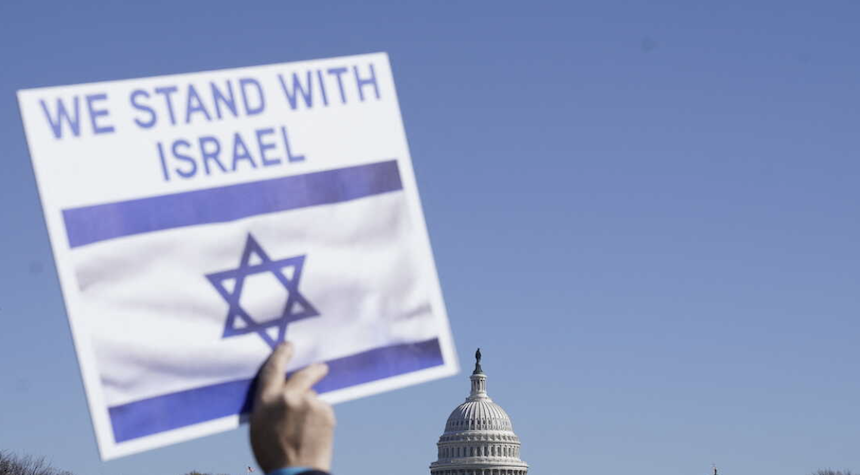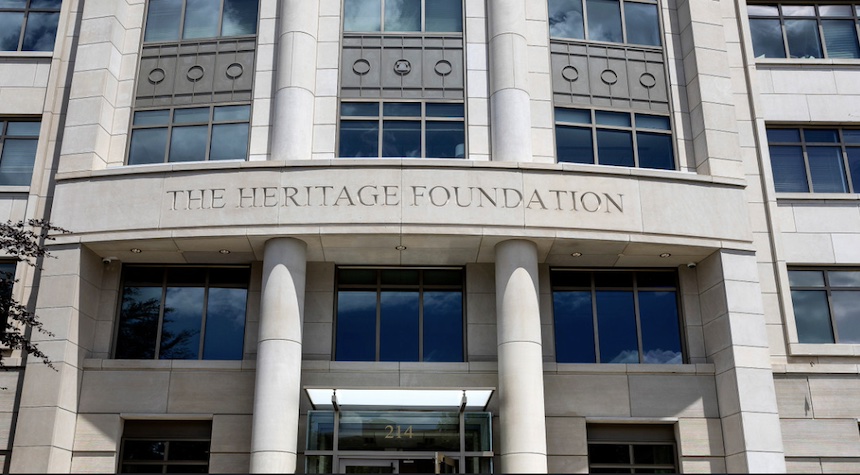Pro-Israel activists are reacting to a new report by the Heritage Foundation, which calls for the U.S. government to reduce direct aid to Israel and replace it with a strategic partnership.
The report’s writers said they have been misunderstood. They say that the “best” thing for Israel is not to put them in the hands of U.S. decision-makers, who could choose to cut off direct aid.
Our goal is to actually reduce U.S. influence over Israel. Victoria Coates said, “I don’t think I want to make them do anything,” during her time as deputy national security adviser to Donald Trump in the first administration. She is also the co-author.
In a current Memorandum of Understanding [MOU] that was signed in 2016, the U.S. will provide Israel $3.8 billion in Foreign Military Financing each year until 2028. Congress provided $9 billion for Israel to wage war on Hamas in 2024.
Heritage says that the memorandum will need to be renegotiated by 2026. This would allow Israel to move from being “primarily an aid recipient to a true strategic partner.”
The heritage plan requires a new memorandum of understanding that will increase Israeli aid from FY 2029-2032 to $4 billion, with all the money going toward equipment manufactured in America. After that, it is expected that this amount would decrease by $250 million per year, until it ends at FY 2047.

Jewish Insider reported on Tuesday that the decision to reduce military aid had raised eyebrows.
Rep. Steny H. Hoyer (D-Md.) said that it is “wrong and dangerous” because it gives comfort to people who want Israel’s destruction.
House The Foreign Affairs Chairman Brian Mast (R-Florida) and Israeli Ambassador Yechiel Leiter were scheduled to attend an event on Wednesday at Heritage’s headquarters to discuss the Heritage report. However, they abruptly retracted their statements the following day. The Israeli ambassador was unable to attend the event due to “miscommunication about the format of the event” but looks forward to future engagement with Heritage.
Jonathan Schanzer is the executive director of the Foundation for Defense of Democracies (a pro-Israel hawkish think tank). He backed the idea of reorienting Israel’s relationship.
Schanzer said, “It’s an important debate which I believe needs to be had.” What happened last year, when the Biden Administration withheld military aid to Israel, must not be repeated.
I believe this is what is driving the current discussion. It is important to have a discussion on how America’s most trusted ally in the Middle East can avoid being in a situation where they are begging for assistance.
Biden stopped arms transfers to Israel in the past year, out of frustration with Prime Minister Benjamin Netanyahu’s treatment of Gaza.

Schanzer said that there is “a valid debate” about the health of Israel if it continues to rely on America.
Some are trying to portray us as alt-right isolationists. “It’s almost comical,” Coates said, adding that he wrote a book last year entitled The Battle For The Jewish State: how Israel and America can win.
She said the plan had been “noncontroversial” among Israeli officials Heritage circulated to.
She said that the Biden administration tried to exert pressure on Israel by controlling its resupply.
After Trump’s departure, “we cannot assume that we will have another friend in this alliance. If we start this process now, we are one step closer to achieving a level playing field between Israel and America.”
Coates stated that the U.S. wanted to maintain the same kind of relationship with Israel as they do with the United Kingdom.
We want to keep investing in joint programs like we do in the U.K., which includes joint exercises and stationing stuff within the country, giving them confidence but not necessarily direct aid.

The scale of the economy in Africa means that they do not need to borrow $4 billion per year.
This report calls for an additional $2.25 billion to be spent on joint U.S. and Israeli programs like the development of missile defense for both countries.
The plan proposes that the U.S. increase its sales of defense products to Israel by $250 million annually starting in 2039. By 2047, Israel will be buying 2,25 billion dollars worth of U.S.-made goods.
Heritage calls for an increased intelligence-sharing and counterterrorism measure, the establishment of a cyber security partnership, the easing of export controls, and “high level economic dialogue.”
The U.S. also stated that it should condition its aid to Palestinians upon “robust disengagement and deradicalization programming in Palestinian Territories to undo decades’ worth of antisemitic, anti-Israel propaganda.”
Coates responded to the criticism of the report by saying, “The antisemitism that has erupted in America, as well as the attacks against Israel, have shown us how much work we still need to do.”
Instead of trying to tear us down for our contributions, we might want to focus on the core issues instead of setting up a firing squad.

